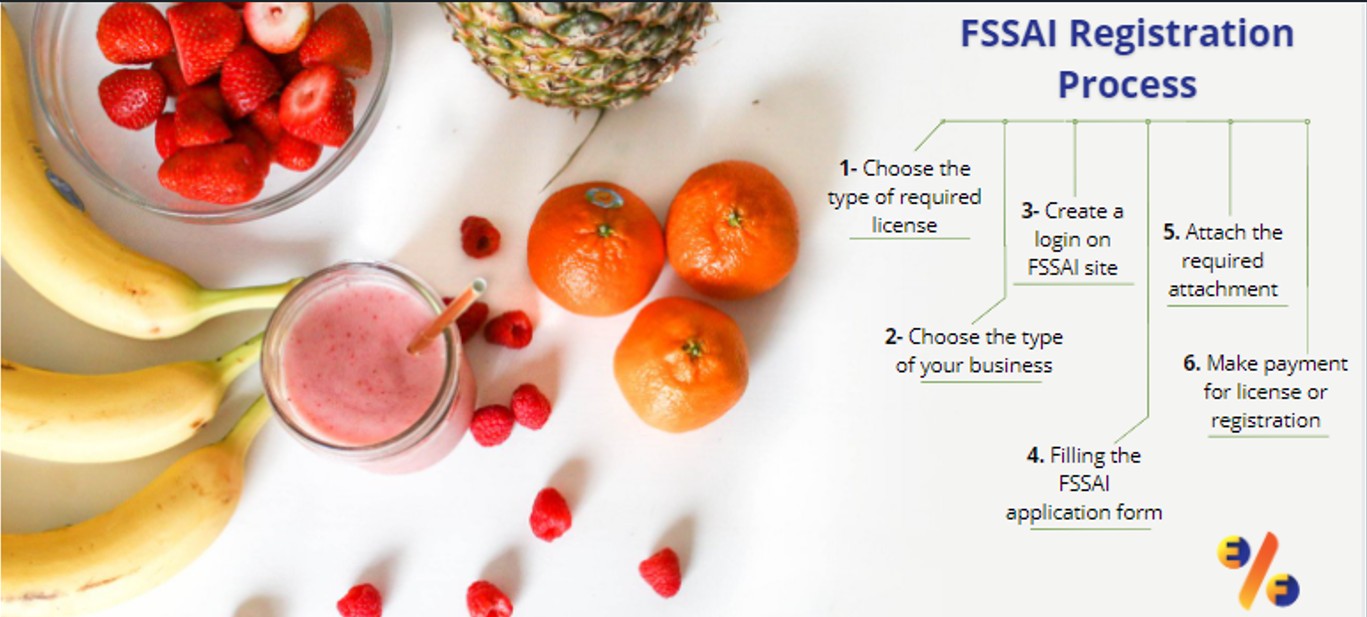Food safety is directly connected to public health, and in a country as large as India, it becomes even more important to regulate food businesses properly. To ensure that every food product reaching consumers is safe, the Food Safety and Standards Authority of India (FSSAI) was established. Any person or company involved in making, storing, distributing, or selling food must complete the FSSAI registration process. Getting an FSSAI license is not only a legal rule but also a mark of trust and quality in the food industry.
Understanding FSSAI Registration
The FSSAI registration is a unique 14-digit number given to food business operators (FBOs). This number has to be displayed at the place of business and printed on packaged food products. It works as proof that the business follows the standards of the Food Safety and Standards Act, 2006. Without an FSSAI license, running a food business in India is illegal, and it can invite strict penalties.
FSSAI Registration Process
The process of getting an FSSAI license in India is straightforward but must be completed carefully. The steps are as follows:
Choose the correct type of registration
- Basic Registration – For very small businesses with an annual turnover up to ₹12 lakhs. This is suitable for petty retailers, small food stalls, or tiny home-based units.
- State License – For medium-sized businesses with turnover between ₹12 lakhs and ₹20 crores. Examples include mid-level restaurants, medium processing units, or distributors.
- Central License – For large businesses with turnover above ₹20 crores, or those operating in more than one state. Exporters, importers, and big manufacturers must apply for this license.
Collect necessary documents
Applicants need identity proof, address proof, passport-size photographs, business premises proof (like electricity bill or rent agreement), and details about the type of food products handled.
Apply through the FoSCoS portal
The Food Safety Compliance System (FoSCoS) is the official online portal for FSSAI registration. The applicant must fill out the form, upload documents, and pay the applicable fee depending on the license type.
Verification and inspection
In some cases, food safety officers may inspect the premises to confirm that the business is following hygiene and safety guidelines.
Issuance of FSSAI license
Once approved, the FBO is given a license with a 14-digit number. This number must be printed on all packaging and displayed at the business location.
Why FSSAI Registration is Important
1. Legal compliance
The biggest reason to register is that it is mandatory. Any food business without an FSSAI license can be fined heavily or even shut down by authorities.
2. Consumer trust
Modern customers are more aware of food quality. When they see an FSSAI number on a product or at a restaurant, they feel confident that the food is safe and hygienic.
3. Better business opportunities
Large retailers, e-commerce platforms, and food delivery apps only partner with FSSAI-licensed businesses. Even for export, an FSSAI license in India is compulsory.
4. Improved food quality
Regular monitoring by FSSAI ensures that businesses maintain proper hygiene, follow labeling standards, and keep quality in check.
5. Avoiding penalties
Running a food business without an FSSAI registration can result in fines, legal trouble, and even loss of reputation.
The FSSAI registration process is not just a formality but a necessary step for every food business in India. From small food stalls to large manufacturers, everyone in the food supply chain must be registered. This license ensures food safety, boosts consumer confidence, helps businesses grow, and keeps them legally protected.
In today’s competitive market, customers always prefer food that is safe and certified. By getting an FSSAI license, food businesses not only follow the law but also show that they care about public health. Therefore, FSSAI registration is the backbone of a trustworthy and successful food business in India.
